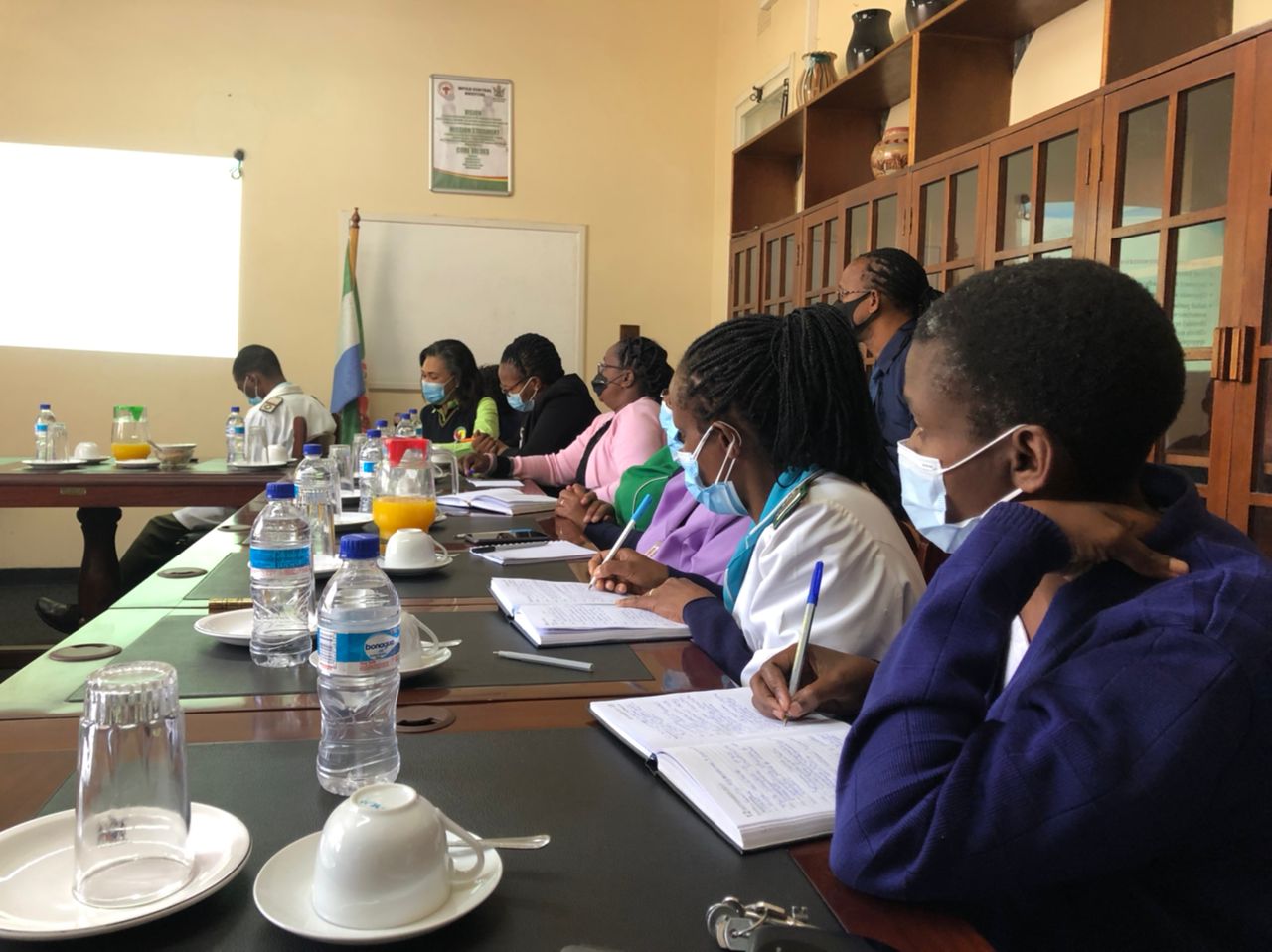Mpilo Central Hospital in Bulawayo has embarked on an awareness campaign to educate communities on individuals born with ambiguous genitalia and offer treatment to those in need.
Intersex is a general term used for a variety of conditions in which a person is born with reproductive or sexual anatomy that does not seem to fit the typical definitions of female or male
This awareness drive comes ahead of the Intersex Awareness Day commemoration that is internationally observed on October 26, designed to highlight human rights issues faced by intersex people.
The theme for this year is, ‘Make the Invisible identities be visible, start the conversation and keep them going.’
Mpilo Acting Chief Executive Officer, Professor Solwayo Ngwenya held a lecture Thursday to educate staff including midwives, nursing officers, registry officials and pastors about what intersex entails.
“I have a special interest in ambiguous genitalia and intersex because a lot of people are suffering in the community alone without help. This is a very important subject because it involves peoples private parts but we need to increase awareness so that people can come and get help,” he said.
“We don’t want to let people suffer certain anatomical conditions they may have, which may be corrected to allow flow of urine, blood and prevent early development of cancer. We will also help with psychosocial support important.”
Prof Ngwenya said the hospital was now teaching staff to be able to identify the sex of a baby at birth, and if the sex was unclear call for further investigation.
“This is a very important clinical issue, it’s not about gays or lesbians. It is purely clinical, anatomical problems with urine and blood outflow that once we help, may be able to function normally. We offer some hormonal treatment, help do surgery to allow urine and blood to come out and remove inappropriate organs because if we don’t they will cause early cancer and premature death. This doesn’t mean you are gay or lesbian, anybody can be affected by congenital issues,” he said.
Prof Ngwenya said as doctors, they had a right to treat a condition but needed parental consent.
“If parents run away with their children, we can’t force them. But I know the complications that arise. You have athletes who are disqualified, you are raised as a boy then have a girlfriend and during sexual intercourse, there is no penetrative sex while society also starts querying you the parents. This is why I said this has to be treated in the neonatal period,” he noted.
In May 2019, when Mpilo Hospital made a call to the public with ambiguous genitalia to register them and undergo a medical examination to curb them from developing cancer, Prof Ngwenya received criticism, with some groups saying this was a sexual issue, claiming what he was doing was genital mutilation.
“I faced huge resistance internationally, received emails that this issue was a gay and lesbian issue. I was told I was interfering with the rights of the child, not do anything but let that child grow up. If we follow this line of thinking, we are not going to win. The way some groups are angry, you can hear I was shot dead. This has nothing to do with gays and lesbians but an anatomical and clinical problem. If we say wait until a child is old because of rights, it’s like seeing someone with malaria and telling them to wait,” said Prof Ngwenya.
He also explained there was a scope of problems that existed for those with ambiguous genitalia as society placed huge demands on people.
“When a baby is born, people ask if it is a boy or a girl. Then society demands one to produce, yet sometimes you will not be able to produce. You may appear like a boy yet you have female hormones then you get married to a girl, what happens, This may issue leads to suicide, violent homes, homicide,” he said.
“Some people even ask for inappropriate operations to remove their breasts because they grew up as males, yet we cannot do so as tests indicate otherwise, then you marry but you are sentencing yourself or the other person. “
Prof Ngwenya cited a case where one boy with ambiguous genitalia killed his father for not taking steps to correct his situation and when he was arrested prison officials wondered which cells to place him in given his situation
Mpilo is the only centre in the country that offers this initiative for people with ambiguous genitalia.
“There are people who are suffering. We have seen people as far as Bikita coming in, some of them old and young. We even received calls from Zambia,” said Prof Ngwenya.
At the lecture, Prof Ngwenya advised registry officials to not register children’s sex until it had been ascertained.
“We may give people affidavits to say this one is a female or male. The registry may write ambiguous genitalia until the condition is solved. That’s why we must have a multidisciplinary team involved here -health workers, communities, church, media, registry, courts to educate the public.”
An advocate of intersex communities, Founder of Butterfly Care, Ruth Ndlovu, said communities needed to be educated about congenital abnormalities and that they can be treated while stressing that it did not mean changing one’s sex.
“It’s high time this issue is publicised. It has been under the shadows for a long time and is only understood by a few people. Most people still don’t really know the gist of this. It takes someone who has seen, held, touched and walked this path to know what the issue is about,” she said.

